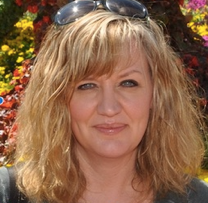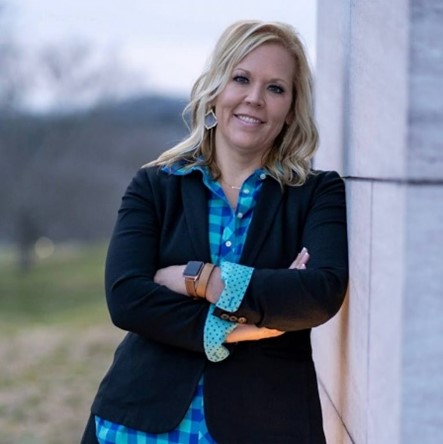July 7, July 25, and August, 5 2022, 10:00am-11:30am EST
Session 1: What is Policy?
July 7, 2022
This session lays the foundation to understand policy. Participants will explore the public health approach and understand that effective prevention includes both individual and environmental strategies.
At the end of the session, participants will:
Session 2: Policy as a Prevention Strategy
July 25, 2022
This session will explore how policy is most effective when linked to local conditions. Participants will examine how to implement both formal and informal policy with a special emphasis on exploring effective policy approaches to reduce substance use in college settings.
At the end of the session, participants will:
Session 3: Being Ethical with Policy, Advocacy vs. Lobbying
August 5, 2022
This session will take a deep dive into the implications of policy, sometimes unintentional, while differentiating between advocacy and lobbying. Participants will also explore how policy affects social determinants of health and how policy can be effectively evaluated.
At the end of the session, participants will:
 Carlton Hall
Carlton Hall
Carlton Hall is the President and CEO of Carlton Hall Consulting LLC (CHC) , a multi-faceted, full-service consulting firm designed to provide customized solutions and enable measurable change for communities, organizations, families and individuals. Carlton Hall has been providing intensive substance abuse prevention focused and community problem solving services to the nation for the last 25 years. His responsibilities, unique set of skills and experience have made him one of the most highly sought after instructors and guides for community problem solving in every state and territory in the nation as well as internationally, with successful achievements in South Africa, Ghana, Bermuda, Kenya and others.
Carlton spent twelve years with the Community Anti-Drug Coalitions of America (CADCA) serving in several leadership positions and including most recently, Acting Vice President, Training Operations, and Acting Director for CADCA's National Coalition Institute. In this role, Carlton provided critical leadership supporting the successful design, and delivery of the community outreach component of the Drug Enforcement Administration’s DEA 360 Strategy in priority cities across the country. Carlton is one of the primary architects of CADCA's National Coalition Academy. The Academy, a year-long coalition development program, is designed to increase the effectiveness of communities in drug demand reduction producing population level outcomes.
Currently, Carlton and the CHC team provide executive training and technical assistance support to the Southeast PTTC (Region 4).
Learn more about Carlton at http://carltonhallconsulting.com/about.html
Dorothy Chaney
 Dorothy Chaney is the Founder of Wisconsin Community Health Alliance, an organization committed to supporting coalitions, agencies and individuals to improve the health of their communities and the environments in which they live. Dorothy is committed to equity in community health and works with communities both nationally and internationally to address health disparities and support the development of local solutions to complex problems. For more than 20 years, Dorothy has worked with community-based coalitions to address the impact of substance use on youth and families. Dorothy has also served on many state level work groups and advisory committees in Wisconsin. Chaney also works with communities to implement collective impact approaches to improve community health.
Dorothy Chaney is the Founder of Wisconsin Community Health Alliance, an organization committed to supporting coalitions, agencies and individuals to improve the health of their communities and the environments in which they live. Dorothy is committed to equity in community health and works with communities both nationally and internationally to address health disparities and support the development of local solutions to complex problems. For more than 20 years, Dorothy has worked with community-based coalitions to address the impact of substance use on youth and families. Dorothy has also served on many state level work groups and advisory committees in Wisconsin. Chaney also works with communities to implement collective impact approaches to improve community health.
Kristin Kidd, MA
 Kristin Kidd, MA, serves as the Coordinator of the SAMHSA-funded Southeast Prevention Technology Transfer Center (PTTC) at Wake Forest School of Medicine. With a focus on health equity, workforce development and policy change, the Southeast PTTC provides free training and technical assistance to the substance misuse prevention field in the southeast (AL, FL, GA, KY, MS, NC, SC, and TN). Kristin is also the Director of the North Carolina Behavioral Health Equity Initiative which partners with 8 grantees working to impact a local health disparity issue. Kristin was formerly the Director of the Tobacco Control Training and Technical Assistant Team at the Colorado School of Public Health. There her team provided state-wide advocacy and policy guidance to local health agencies working to eliminate tobacco disparities. Kristin partnered with multiple Colorado communities to successfully pass local tobacco control policies such as retailer licensing and expanded smoke-free/vape-free protections. In her limited free time, Kristin enjoys mountain biking, trail running and gardening.
Kristin Kidd, MA, serves as the Coordinator of the SAMHSA-funded Southeast Prevention Technology Transfer Center (PTTC) at Wake Forest School of Medicine. With a focus on health equity, workforce development and policy change, the Southeast PTTC provides free training and technical assistance to the substance misuse prevention field in the southeast (AL, FL, GA, KY, MS, NC, SC, and TN). Kristin is also the Director of the North Carolina Behavioral Health Equity Initiative which partners with 8 grantees working to impact a local health disparity issue. Kristin was formerly the Director of the Tobacco Control Training and Technical Assistant Team at the Colorado School of Public Health. There her team provided state-wide advocacy and policy guidance to local health agencies working to eliminate tobacco disparities. Kristin partnered with multiple Colorado communities to successfully pass local tobacco control policies such as retailer licensing and expanded smoke-free/vape-free protections. In her limited free time, Kristin enjoys mountain biking, trail running and gardening.
Stephanie Strutner, MPH
 A retired substance use prevention coalition director, Stephanie Strutner, MPH owns and operates an independent consulting firm, Catalyst Evaluation Group, through which she provides support to clients through measuring impact and conducting biostatistical and epidemiological analyses. She also serves as consultant and trainer for Community Anti-Drug Coalitions of America (CADCA) where she teaches the intensive three-week National Coalition Academy for the Office of National Drug Control Policy. She is a trainer and consultant for the Alliance of Better Nonprofits in Knoxville where she helps support local charities to operate using effective business models and evaluate effectiveness to achieve sustainability and serves as the part-time CEO for the Prevention Alliance of Tennessee.
A retired substance use prevention coalition director, Stephanie Strutner, MPH owns and operates an independent consulting firm, Catalyst Evaluation Group, through which she provides support to clients through measuring impact and conducting biostatistical and epidemiological analyses. She also serves as consultant and trainer for Community Anti-Drug Coalitions of America (CADCA) where she teaches the intensive three-week National Coalition Academy for the Office of National Drug Control Policy. She is a trainer and consultant for the Alliance of Better Nonprofits in Knoxville where she helps support local charities to operate using effective business models and evaluate effectiveness to achieve sustainability and serves as the part-time CEO for the Prevention Alliance of Tennessee.
Stephanie holds a Bachelor of Science degree in Biology from Emory & Henry College, a Master of Public Health degree in Health Policy and Management from the University of Tennessee with a focus and field practice in Epidemiology and Biostatistics, a Certificate in Social Enterprise Effectiveness from the College of Business Administration at the University of Tennessee, and is a Level II Certified Prevention Specialist. Previously, Stephanie served as Executive Director for ASAP of Anderson for over a decade, where she secured $6 million in grant funds and left $300,000 in unrestricted raised funds. A veteran in the field of substance use prevention, she has served in leadership roles at the state and national levels for nonprofit organizations as well as for community coalitions and agencies.
Stephanie has spoken on a number of occasions before our U.S. Senators on Capitol Hill about the impact drug use has on our communities and has also testified in Nashville before the Tennessee General Assembly on multiple pertinent prevention issues. In 2018, she attended a meeting in the West Wing of the White House with the President of the United States to discuss effective opioid prevention strategies in local communities. In 2020, the efforts and impact of the coalition she led were selected to be showcased as a case study to Congress. Stephanie is also skilled in logic model development, strategic planning, and evaluation.
Stephanie has been honored with the Young Professionals of Knoxville Outstanding Young Professional Impact Award for her efforts in improving her community in 2015 and was awarded as CADCA’s Advocate of the Year in 2016. Under her leadership, ASAP of Anderson was honored as CADCA’s National Coalition of the Year in 2015.
An avid snow skier, Stephanie also enjoys stand-up paddle boarding, golf, boating, and spending time with her people, Matt and Blair, and their furry creature, Oliver.